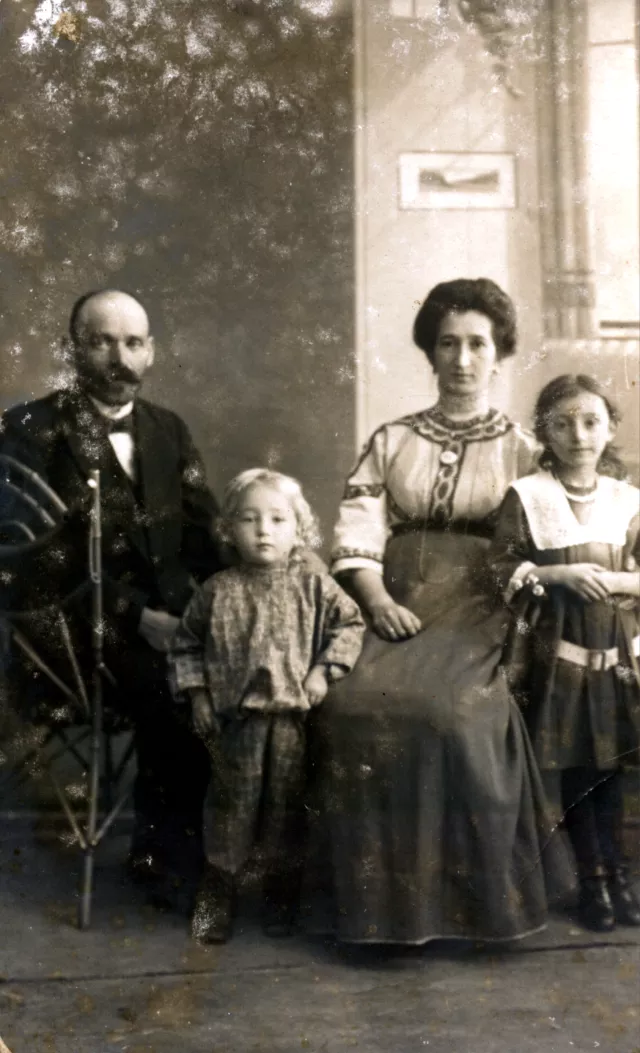This is a picture of my grandfather Moisey Ostrovskiy, my grandmother Pesia Ostrovskaya, nee Fridkina , my mother Revekka Ostrovskaya and her brother Naum Ostrovski. They were photographed when they visited their relatives in Chernigov in 1912.
Before the Revolution of 1917 my mother's family lived in the small village of Kalygarka in Kiev region. I don't know anything about this village. My grandfather was born in the 1880s. He was a forest warden. My grandmother was also born in the 1880s and came from a wealthy merchant's family.
Their peaceful life ended in 1917 when the Revolution took place and was followed by the Civil War. Gangs attacked their neighborhood and carried out pogroms. My grandfather's family found shelter in Ukrainian families. My grandfather's house was robbed. The bandits broke their beautiful kosher crockery and took away the silver tableware. But this wasn't the most terrible thing that happened. This disaster was a hard blow to my grandfather. He fell very ill and died in 1919 from a broken heart, as they called it in his time, or, from infarction to use a more modern language. I've never been to his grave, but I think he was buried in the Jewish cemetery in Kalygarka and that there was a Jewish funeral. It couldn't have been otherwise back then, particularly in religious Jewish families. My grandmother sold what was left and moved to Chernigov with her four children. She bought a small house. At some point she told herself, 'There's no God', and stopped observing Jewish traditions. She made a single exception for Pesach when she bought matzah and cooked delicious food: gefilte fish, chicken broth, stew and pudding from matzah flour. She didn't have any kosher utensils or crockery, though.
My grandparent's children grew up to become atheists, even though they studied with a melamed and finished Jewish elementary school when they were young.
My mother, the oldest, was born in 1906. After her came Naum, who was two or three years younger. Naum finished Agricultural College and lived his life in Chernigov. He worked for a grain supply company. Naum wasn't liable for military service due to his poor sight. He had a 'white card' [a release from the army]. He was in evacuation with his wife Sima and his daughters Alla and Anna. Naum died in Chernigov in the middle of the 1970s. He was buried in the town cemetery. His daughters and their families moved to Israel in the 1970s. Alla passed away in 2000. Anna and her family live in Haifa.
Moisey Ostrovski with his family
The Centropa Collection at USHMM
The Centropa archive has been acquired by the United States Holocaust Memorial Museum in Washington, DC.
USHMM will soon offer a Special Collections page for Centropa.
Academics please note: USHMM can provide you with original language word-for-word transcripts and high resolution photographs. All publications should be credited: "From the Centropa Collection at the United States Memorial Museum in Washington, DC". Please contact collection [at] centropa.org.














